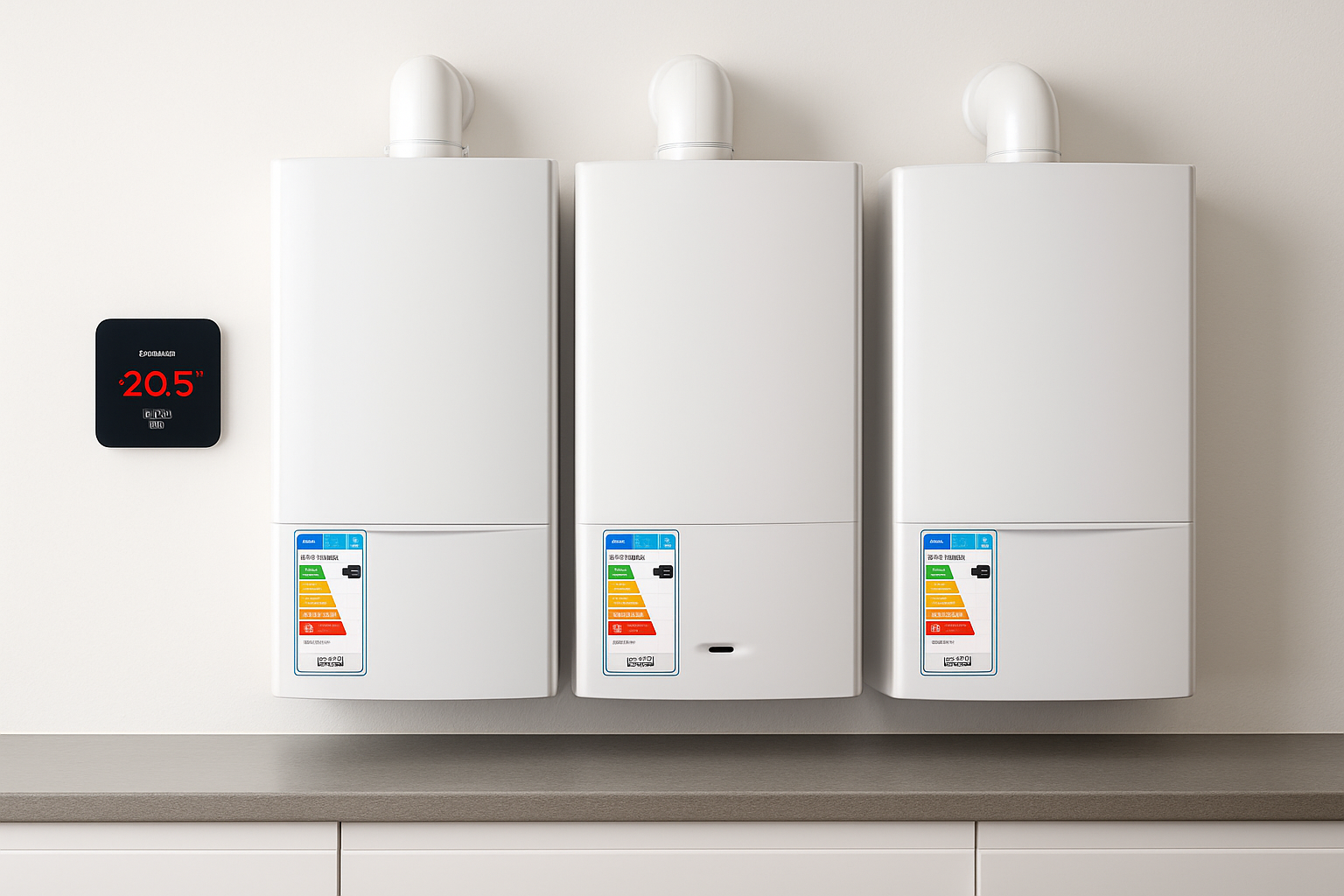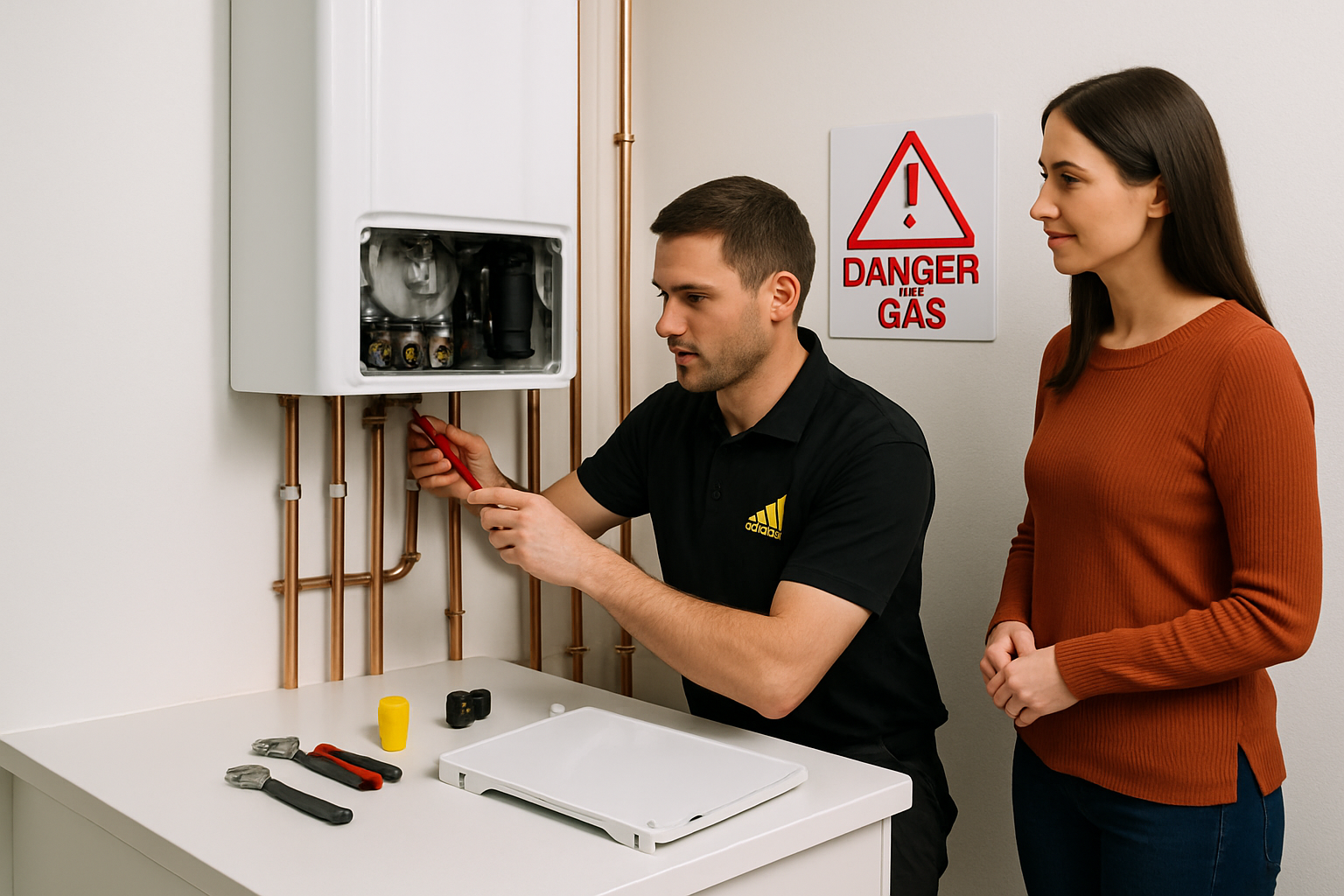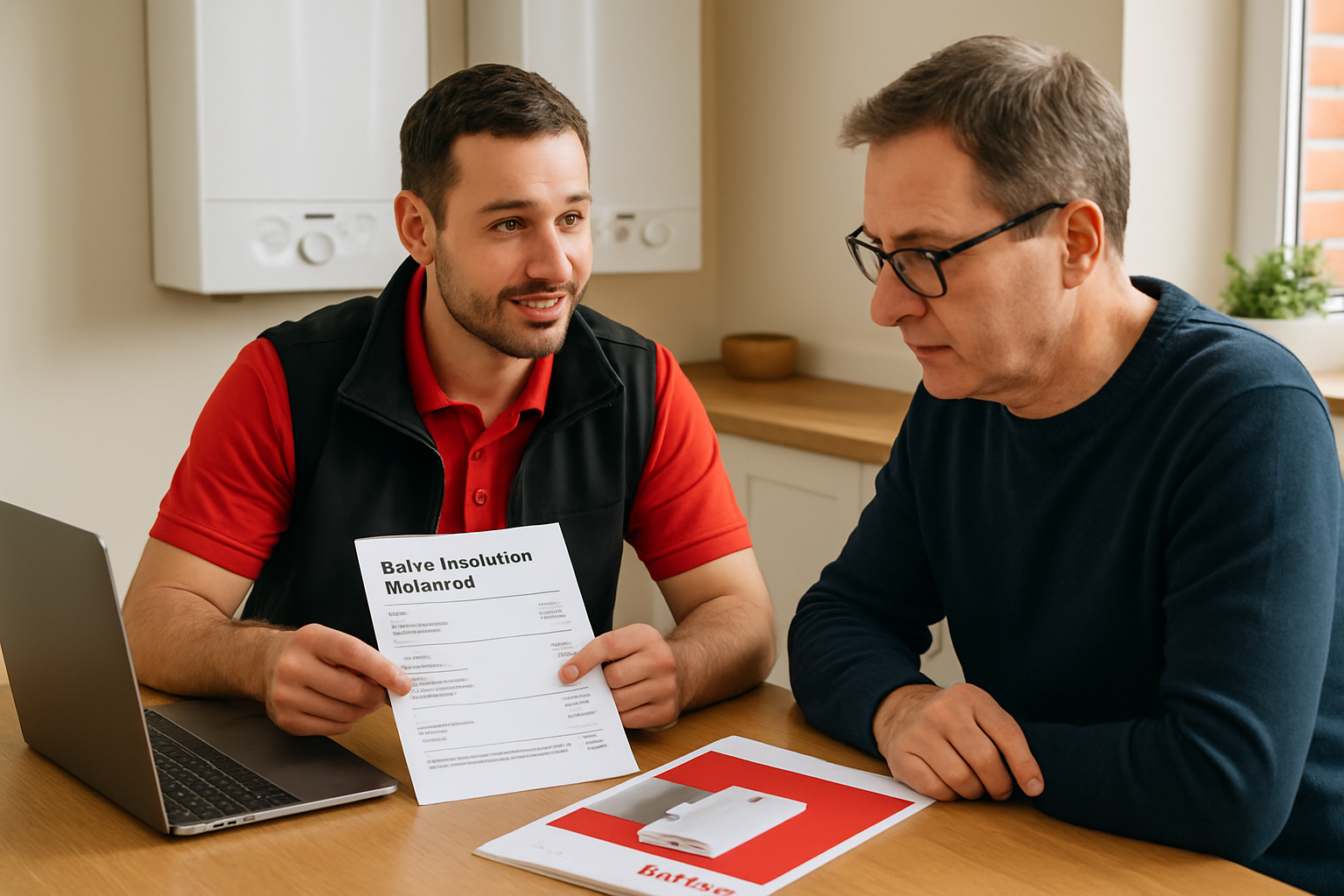Boiler And Installation Guide: Expert Tips For 2025
Are you prepared for the 2025 changes in home heating? Upgrading your boiler and installation is more urgent than ever, thanks to rising energy costs and new UK regulations demanding greater efficiency.
This expert-led guide walks you through everything you need to know, from the latest boiler types to the full installation process and smart ways to maximise savings.
You’ll discover how to choose the right system, unlock government incentives, and keep your home warm and compliant. Ready to save money and avoid future headaches? Let’s get started with the essential tips every homeowner needs for 2025.
Understanding Boiler Types and Technologies in 2025
Choosing the right boiler and installation in 2025 is crucial for home comfort, efficiency, and meeting new regulations. With evolving technology and stricter standards, it's more important than ever to understand your options. This section breaks down boiler types, highlights innovations, explains efficiency ratings, reviews leading brands, and guides you in selecting the best system for your property.

Overview of Modern Boiler Types
When considering a boiler and installation, you’ll encounter three main types: combi, system, and regular boilers.
- Combi boilers provide hot water on demand and are ideal for smaller homes with limited space.
- System boilers store hot water in a cylinder, making them suitable for larger households with higher water needs.
- Regular boilers (also known as conventional or heat-only) work with separate cylinders and tanks, often chosen for period properties or homes with traditional setups.
| Boiler Type | Best For | Key Feature |
|---|---|---|
| Combi | Flats, small houses | No tank needed |
| System | Medium–large homes | Cylinder for extra hot water |
| Regular | Large/older homes | Works with existing tanks |
Selecting the right boiler and installation type ensures your heating system matches both your property’s size and your daily hot water requirements.
Innovative Boiler Technologies
In 2025, the boiler and installation market is seeing a surge in innovative technologies. Hydrogen-ready boilers are now available, designed to run on natural gas today and switch to hydrogen in the future. This future-proofs your system against upcoming fuel changes.
Hybrid boilers combine traditional gas with renewable heat sources, like heat pumps, to lower carbon emissions. Modern boilers also integrate seamlessly with smart home systems. For example, pairing a boiler with a smart thermostat allows for precise temperature control and remote scheduling, boosting efficiency and comfort.
These advances mean your boiler and installation can deliver not just heat, but intelligent, eco-friendly performance that adapts to your lifestyle.
Energy Efficiency Ratings and Standards
Energy efficiency is at the heart of every new boiler and installation in 2025. All boilers must meet strict ERP (Energy-related Products) ratings, with most new units achieving an A rating. This means they use less fuel, reduce emissions, and save you money.
Upgrading to an A-rated boiler can cut your annual bills by up to £840, according to USwitch. The latest Boiler Plus regulations overview also sets minimum efficiency standards and requires smart controls on new installs. These rules ensure your boiler and installation not only comply with the law but also deliver maximum savings and sustainability.
Leading Boiler Brands and Models
When planning your boiler and installation, choosing a reputable brand is key. Top names in the UK include Worcester Bosch, Vaillant, Viessmann, Ideal, and Baxi. These manufacturers are known for reliability, advanced features, and excellent aftercare.
Many leading models offer extended warranties—sometimes up to 12 years—giving you peace of mind. Features like built-in smart controls, weather compensation, and high-efficiency pumps are now standard on premium models. Investing in a trusted brand for your boiler and installation ensures long-term value and dependable performance.
Choosing the Right Boiler for Your Home
Selecting the perfect boiler and installation depends on several factors. Consider your property’s size, how many bathrooms you have, and your typical hot water usage. The existing heating system, water pressure, and pipework condition also play a role.
A professional assessment is crucial. For example, a large home with multiple showers may need a system boiler and upgraded pipework to maintain pressure. By evaluating these details, you can ensure your boiler and installation delivers efficient, reliable heating tailored to your unique needs.
Step-by-Step Boiler Installation Process
Upgrading your home's heating in 2025 starts with understanding the complete boiler and installation journey. Whether you’re replacing an old unit or fitting a new system, following a structured approach ensures safety, efficiency, and long-term savings.

Pre-Installation Assessment and Planning
A successful boiler and installation project always begins with a thorough home survey. A heating engineer will assess your property’s heating needs, the existing system, and ventilation. This step determines what type of boiler is best for your space and whether your current pipework or flue needs upgrading.
It’s essential that a Gas Safe registered engineer performs this assessment. They’ll check for safety compliance and note any unique requirements your home might have. For example, older properties may need pipe upgrades or new flue systems before the boiler and installation can proceed.
Selecting the Correct Boiler and Accessories
Choosing the right boiler and installation options involves more than picking a brand. The engineer will size the boiler based on your property’s demands, ensuring it delivers the right amount of heat and hot water. Selecting compatible accessories, such as smart thermostats or thermostatic radiator valves (TRVs), is equally important.
For effective boiler and installation, matching the boiler’s output to your home size is crucial. An undersized boiler can struggle, while an oversized model may waste energy. Professional advice ensures you select efficient controls and accessories for optimal performance.
Preparing for Installation Day
On installation day, homeowners should prepare by clearing the area around the existing boiler and ensuring easy access for the engineer. This step helps speed up the boiler and installation process and reduces the risk of accidental damage to your belongings.
Expect some disruption—installers may need to turn off your heating and water supply temporarily. Typically, a straightforward boiler and installation takes one to two days, but more complex setups may require extra time. Planning ahead minimises inconvenience and ensures a smooth upgrade.
The Installation Process Explained
The main stage of boiler and installation involves several key steps. First, the old boiler is safely removed and disposed of according to regulations. Next, the new boiler, pipework, and controls are installed in line with the manufacturer’s instructions.
After fitting, the engineer conducts essential safety checks and tests the system for leaks or faults. For a detailed breakdown of what to expect during this stage, see the Boiler installation process explained. This resource outlines the typical steps and timeframes for a seamless boiler and installation.
Post-Installation Checks and Handover
Once the boiler and installation is complete, the engineer will commission the system. This involves running efficiency and safety checks to confirm everything works as it should. You’ll receive a user demonstration, learning how to operate your new boiler and controls.
Proper handover includes providing all relevant documentation, such as benchmark certificates and warranties. Keeping these records is vital for future servicing and validating your boiler and installation warranty.
Ensuring Compliance and Registration
The final step in the boiler and installation journey is compliance and registration. Your engineer must register the new installation with local authorities and Gas Safe. This step is crucial for maintaining home insurance cover and meeting legal requirements.
You’ll receive a Gas Safe certificate for your records, confirming the boiler and installation meets all UK standards. Always ensure these documents are safely stored, as they may be needed for future property sales or warranty claims.
Boiler Installation Costs, Financing, and Value
Understanding the costs and value of a new boiler and installation is vital for homeowners planning upgrades in 2025. With new regulations and energy efficiency standards, getting the most for your money is more important than ever. Let’s break down everything you need to know about pricing, payment options, and long-term savings.

Breakdown of Installation Costs
When considering a new boiler and installation, costs can vary significantly. The main factors influencing the final price include the type of boiler chosen, the complexity of the installation, the brand, and any additional controls or upgrades required.
Here’s a quick table to illustrate typical costs:
| Boiler Type | Average Installation Cost |
|---|---|
| Combi Boiler | £1,500 – £2,500 |
| System Boiler | £1,800 – £3,000 |
| Regular Boiler | £2,000 – £4,000 |
(Source: USwitch)
Additional expenses may arise if pipework needs upgrading or smart controls are added. Remember, a boiler and installation package that includes warranties and aftercare can offer better long-term value.
Comparing Quotes and What to Look For
Always obtain multiple quotes for your boiler and installation to ensure you’re getting the best deal. Look beyond just the price—focus on what’s included in each quote.
Key things to check:
- Labour and parts costs
- Warranty duration and coverage
- Aftercare services (like first-year servicing)
- Removal and disposal of old equipment
A reputable installer will provide a clear breakdown, so you know exactly what to expect. Some companies even include the first year’s servicing for free, adding extra value to your boiler and installation investment.
Boiler Finance and Payment Options
Not everyone can pay upfront for a boiler and installation, so flexible finance options are increasingly popular. Many providers now offer 0% APR deals or pay monthly plans, making it easier to spread the cost.
Consider the pros and cons:
- Finance: Lower initial outlay, manageable payments, but may include admin fees.
- Upfront Payment: No interest or fees, but requires more savings.
Homeowners should assess their budget and choose the option that best fits their financial situation. Flexible payment plans mean a new boiler and installation is accessible for more households.
Long-Term Value: Efficiency and Savings
Investing in a modern boiler and installation pays off over time through improved efficiency and reduced energy bills. An A-rated boiler can save you up to £840 per year, quickly offsetting higher upfront costs.
When considering value, factor in:
- Reduced running costs
- Fewer breakdowns and repairs
- Extended warranties for peace of mind
A well-chosen boiler and installation not only provides reliable warmth but also boosts your home’s value and comfort for years to come.
Government Grants and Incentives for 2025
Government support can make your boiler and installation even more affordable in 2025. Schemes like the Boiler Upgrade Scheme and ECO4 offer grants for low-carbon and hydrogen-ready boilers, helping homeowners meet new efficiency standards.
To check eligibility and learn how to apply, visit the Boiler Upgrade Scheme details. Typical requirements include:
- Upgrading to an approved boiler type
- Meeting property and income criteria
- Using a certified installer
Taking advantage of these incentives can significantly reduce your boiler and installation costs while future-proofing your home.
Key Regulations, Safety, and Compliance in 2025
Staying compliant with boiler and installation rules is more important than ever in 2025. New government regulations, updated safety practices, and legal requirements are shaping the way homeowners approach heating upgrades. Let’s break down what you need to know to stay safe, legal, and future-ready this year.

2025 Boiler Regulations Overview
The landscape for boiler and installation in the UK is changing fast. As of 2025, all new boilers must meet strict minimum efficiency standards, typically an ERP rating of at least 92%. Non-condensing boilers are now phased out, with a strong push towards hydrogen-ready and low-carbon alternatives.
For new builds and major renovations, the Future Homes Standard insights highlight that only ultra-efficient systems, like hydrogen-ready or hybrid models, are allowed. This shift supports the UK’s net-zero goals and reduces household emissions.
Key points:
- Minimum efficiency: ERP A-rated (92%+)
- Banned: non-condensing gas and oil boilers
- Hydrogen-ready: mandatory for most new installations
These standards mean your next boiler and installation will not only be greener but also future-proofed for upcoming fuel changes.
Gas Safe Registration and Legal Requirements
Legally, every boiler and installation must be carried out by a Gas Safe registered engineer. This protects you, your home, and ensures all work meets the latest safety and compliance standards.
Before work begins, always check your engineer’s Gas Safe ID. This small step can avoid major risks, like dangerous gas leaks or voided insurance. Unregistered installations are illegal and could put your family at risk.
Key checks:
- Ask to see the Gas Safe ID card
- Verify registration on the Gas Safe Register website
- Never accept DIY or “cash-in-hand” boiler and installation offers
Cutting corners with unqualified installers not only breaks the law but puts your safety on the line.
Homeowner Responsibilities and Documentation
After any boiler and installation, homeowners must keep essential documentation for legal and financial reasons. Proper paperwork proves compliance and is vital for future property sales or insurance claims.
Required documents:
| Document Type | Purpose |
|---|---|
| Gas Safe Certificate | Confirms safe, legal installation |
| Benchmark Certificate | Records commissioning and checks |
| Service Records | Tracks annual maintenance |
Missing paperwork can delay house sales or result in insurance refusals. Always store copies in a safe, accessible place. If you lose documents, contact your installer or Gas Safe for replacements. Staying organised is key for hassle-free boiler and installation compliance.
Safety Tips and Common Pitfalls
Safety is at the heart of every boiler and installation. Ensure your home is well ventilated and always fit a carbon monoxide alarm near your boiler. Never attempt DIY installation—qualified engineers are trained to spot issues you might miss.
Common pitfalls include:
- Blocking boiler vents or flues
- Forgetting annual servicing
- Ignoring warning lights or error codes
For a deeper dive, see Common boiler installation mistakes to avoid costly errors. Regular servicing not only keeps your system efficient but also maintains your warranty.
By following these safety steps, your boiler and installation will provide reliable, worry-free warmth for years to come.
Maintenance, Servicing, and Troubleshooting Tips
Regular maintenance is the backbone of any efficient boiler and installation. Staying proactive with servicing not only keeps your system safe but also guards your investment and ensures your home stays warm when you need it most.
Importance of Regular Boiler Servicing
Routine servicing is essential for any boiler and installation. Annual checks keep your system running efficiently, reduce the risk of breakdowns, and help maintain your manufacturer’s warranty. For most modern boilers, an annual service is required to keep warranties valid.
A professional engineer will inspect key components, clean internal parts, and carry out safety checks. This not only extends your boiler’s lifespan but also ensures it meets the latest safety standards. For a detailed guide on essential servicing steps and how they benefit your home, see these boiler servicing and maintenance tips.
Common Boiler Problems and Solutions
Even the best boiler and installation can run into issues. Common problems include low pressure, leaking pipes, or no heating or hot water. Before calling an engineer, check the pressure gauge—most boilers operate between 1 and 1.5 bar.
Try resetting your boiler using the manufacturer’s instructions. Bleeding radiators can resolve cold spots, and checking for visible leaks helps identify urgent problems. If these steps don’t restore function, it’s time to seek professional help. Avoid DIY repairs beyond basic troubleshooting to stay safe and protect your warranty.
Maximising Boiler Lifespan and Efficiency
To get the most from your boiler and installation, focus on regular upkeep and smart technology. Powerflushing your system every few years removes sludge and improves heat distribution, boosting efficiency by up to 15%. Using inhibitor chemicals helps prevent corrosion inside your pipes and radiators.
Smart controls and thermostats let you manage your heating remotely, optimising comfort while cutting energy waste. Keep an eye on system pressure and book annual servicing to catch small issues before they escalate. These habits can add years to your boiler’s life and keep bills in check.
When to Repair vs. Replace Your Boiler
Deciding whether to repair or replace your boiler and installation can be tricky. Warning signs include frequent breakdowns, rising repair costs, or difficulty sourcing parts for older models. Generally, boilers over 10-15 years old are less efficient and more expensive to run.
Compare repair costs with the price of a new, energy-efficient model. Sometimes, investing in a replacement saves more in the long run. For a full list of red flags, check out these signs you need a new boiler.
Service Plans and Aftercare Options
Protect your boiler and installation with a service plan or aftercare package. Many providers offer annual servicing, priority breakdown cover, and parts and labour included. Some even throw in a free first service with a new installation.
When choosing a plan, consider what’s covered—annual checks, emergency call-outs, or accidental damage. Service plans provide peace of mind, helping you budget for maintenance and avoid costly surprises. Opt for reputable providers with clear terms and positive customer reviews.
Now that you’ve got the full picture on choosing the right boiler and what to expect during installation in 2025, it’s clear how much confidence comes from having an experienced, local team on your side. If you’re in Kent, Rochester or Gravesend and want expert advice, safe installation, and ongoing support, why not chat with the friendly team at Castle Heating Kent? They’re Gas Safe registered, highly recommended, and always happy to help you find the best solution for your home. Ready to take the next step? Call Now on 01634790511 or 0800 0016511

